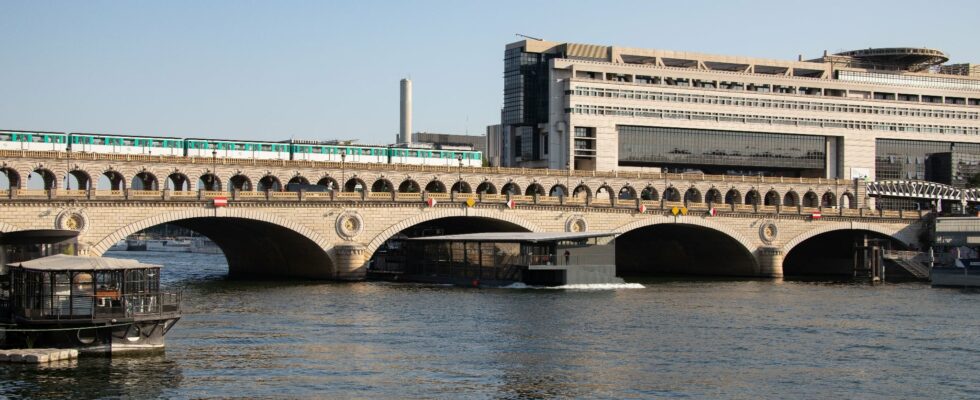The time of reckoning is approaching. The Conference of Presidents of the Assembly opened the way, Tuesday October 15, for a transformation of the Finance Commission (responsible for monitoring the State budget), into a commission of inquiry into the slippage of public finances. Demanded by oppositions from the right and the left and endorsed by Prime Minister Michel Barnier who said he wanted “the truth” to come out, it should make it possible to understand what are the causes of the unexpected deterioration in the public deficit.
Who is calling for this commission of inquiry?
The president of the parliamentary group of the Union of Rights for the Republic (UDR), Éric Ciotti, announced last week his wish to use the “right of drawing” of his group to create a commission of inquiry into the ” drift of public finances.
In the process, the Insoumis Éric Coquerel made known his intention to request investigative powers for the Finance Committee – which he chairs – “in order to study the causes of the variability of fiscal and budgetary forecasts and the “evolution of public deficits in recent years”. Two competing initiatives that the Conference of Presidents of the Assembly decided on Tuesday morning to “join”, with the agreement of the UDR in exchange for a position of co-rapporteur.
The vice-president of the finance committee, the socialist deputy Philippe Brun, also made this request on Friday October 11, accusing the former government of having wanted to “deliberately hide” the situation. Same accusation from Charles de Courson: “It is clear that the government tried to conceal the real state of the accounts, at the start of the year, because the European elections were coming,” declared the general budget rapporteur at the National Assembly to the World.
To do what?
The Finance Committee will therefore decide this Wednesday, October 16 at the end of the afternoon on its wish to transform itself into a commission of inquiry, while the examination of the very political budget of the National Assembly begins in the National Assembly. State for the year 2025. Such a situation is rare but not unprecedented: in 2018, the Law Commission, then chaired by Yaël Braun-Pivet, requested powers of investigation (summoning with obligation for the person of the honor, power of investigation, risk of prosecution in the event of false testimony, etc.), to look into the Benalla affair.
This time, the investigation will have to shed light on the unexpected slippage in the public deficit, about which internal notes from Bercy were already warning from the fall of 2023, as recently revealed by France 2. The deficit should thus reach 6, 1% of GDP this year, or 50 billion euros more than the 4.4% voted for last year, according to the latest official figures from Bercy. This is a figure well above the 5.1% announced by the former government, and of course the 3% threshold set by the European Union.
The usual spur of the government, the Senate will not be left out, and will relaunch its information mission on the deterioration of public accounts on Wednesday. This body, which distinguished itself at the start of the year by carrying out an inspection in Bercy, plans a new cycle of hearings in the coming weeks within the Finance Committee of the upper house.
What do the government and the former majority say about it?
From a procedural point of view, the decision of the Finance Committee of the Assembly can be contested by the government, a president of a political group or a president of a committee, according to the regulations of the National Assembly. However, the executive does not seem to be opposed to it, Michel Barnier having estimated on Tuesday in the hemicycle that this commission of inquiry should “determine the figures, the facts, the truth and tell it to the French”. Questioned by Éric Ciotti during the question session to the government, the Prime Minister took the opportunity to deliver his analysis: “There has been a surge” because of the Covid epidemic, the war in Ukraine and the inflation, he admitted, then “we poorly managed the way out of the crisis”. Way of justifying the stated effort of 60 billion – including 20 in tax increases and 40 in spending reductions – to straighten out the accounts, while returning the hot potato to his predecessors.
On France Inter on Monday, former Prime Minister and current Renaissance MP Gabriel Attal also welcomed this perspective, judging it “always positive when Parliament does its evaluation work”. Several of his colleagues from Renaissance nevertheless estimated that “everything is transparent” and that “we should not expect much” with the commission of inquiry, preferring to encourage the government to take measures to mitigate the 2024 deficit, such as the introduction of retroactive measures in the 2025 budget.
First targeted, the former Minister of the Economy Bruno Le Maire has refused in recent days to answer journalists’ questions, after assuring France 2 that “the truth would emerge later”. “A parliamentary commission of inquiry into public finances has been set up. I am naturally at its complete disposal. I will answer all its questions in complete transparency,” he still declared on X on Tuesday evening .
